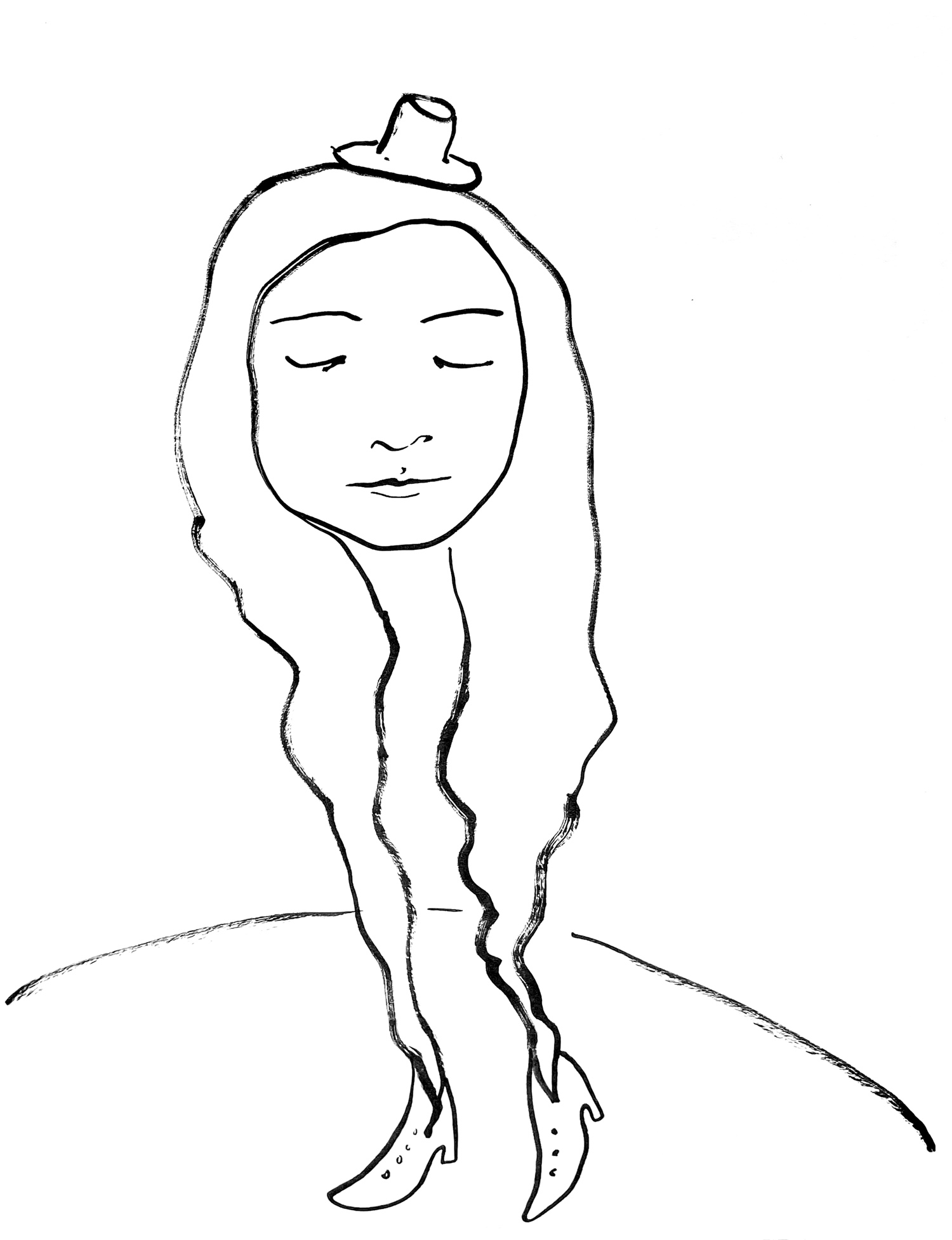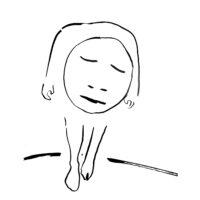A serious study on the role of humor in pedagogical practice. It prevents blockages, regulates the heat balance, helps with proper breathing, and even leads to new hair growth.
It’s no laughing matter!! If the Paris metro does not run every three minutes during rush hour, thousands of people will be stuck in underground passages. The anger and annoyance at those responsible for these conditions condense into tremendous pressure in each stuck individual, accumulating in the arteries, muscles, larynx, and soul and, depending on the case, leading to spectacular explosions or painful cramps – individually and collectively. Actually, I want to go to an important job interview, to a charming date, or shopping – but now I am squeezed between foul-smelling people in a metro car stuck in the tunnel.
It’s no laughing matter! Joseph, the actually quite reasonable adult autistic, whose integration into the world of work is taken care of by a group of motivated educators, does the same stupid things over and over again. No progress! Again and again, he loses his job because he expresses his sympathy for colleagues too obtrusively. And then there is this other problem: on a specific metro line between two certain stations, he always pulls the emergency brake. To his educators, he says: «Someone has unintentionally smashed the window of the emergency brake again.»
It’s no laughing matter! The educators feel their own powerlessness, and the high pressure described above also discharges on them. They want to help Joseph step by step to more autonomy. They want the health department to value their creative educational methods, but instead, these disasters happen again and again.
And they laugh! They turn the desperate situation into a game in which many educators and Joseph himself are involved. The high expectation of improvement of his behavior, which is now being built, is completely imbued with humor: The massive step in terms of self-education, which is required of him (= do not pull on the emergency brake), is prepared with him in the mood of a sporty, cheerful game. And then, after his victory over himself, it is celebrated accordingly by the whole team of educators. Then, some previously annoyed metro riders laugh again.
Everything Extraordinary
The working atmosphere and the challenges faced by Waldorf educators and teachers can be well compared with the socio-educational institution from the French social comedy by the directing duo Éric Toledano and Olivier Nakache ‹Everything Extraordinary›: high demands, little money, too few and only recently trained employees, increasingly demanding parents, increasingly difficult children, and ever-stricter inspections. If pandemics and wars are still causing social fuel, how can we make progress? It’s really no laughing matter! Or is it? Yes, yes! One can prove through serious studies that Steiner never tired of citing the various serious reasons for humor:
Medical reasons for kindergarten: «Joy and pleasure are the forces that lure out the physical forms of the organs in the most proper way.»1
Thermal reasons for the teacher: «It is necessary to keep the imagination alive all the time. Otherwise, its products will freeze intellectually. But this sheds light on the way the teacher themself must be. They must not stagnate at any moment in their life.»2
Breathing reasons for the students: «Humor is the exhalation of the soul. You must bring humor into the lessons, which can be sought from different corners. Humor comes from what I call momentum. The momentum has to go in […].»3
Preventing constipation: «Laughter is actually a process that makes us organically healthy. It acts like a proper healthy, undisturbed digestion! Well, here we come to bring the humorous, the cheerful into a relationship with the digestive process.»4

Temptation
Modern educational science does not venture to the point of excretion. Still, concerning the intellect, it is pretty much in agreement: «Humor is a valuable resource – a basic attitude that makes it possible to break up entrenched patterns of thought and action and to think through new approaches to solutions.»5
As is well known, the most critical format of a Waldorf institution is the Pedagogical Conference, out of which every teacher refreshes themselves every week through mutual appreciation, exciting research discussions, and helpful children’s observations and goes into their everyday teaching and education with new impetus. But when the pressure of worry becomes too high, freshness does not always want to immediately readjust. This was no different for the colleagues of the first Waldorf School, and even in the presence of Steiner, it occasionally seemed as if everyone just wanted to pull their hair out.
Once, for example, there was an urgent need for additional rooms, a gymnasium, a Eurythmy hall, and much more. However, it was already challenging to finance teachers’ salaries, and there was also dynamic inflation. No laughing matter?
In any case, Steiner suggested that high profits could be made by simply inventing and selling innovative products for school financing if the products were well coordinated. They then invented a special shaving soap and hair growth agent called ‹Temptation› at the Goetheanum. – A colleague immediately responded: «I wanted to try it out, at the risk of my wife no longer knowing me.» Rudolf Steiner: «Our Eurythmy ladies have already taken it upon themselves to use the hair remedy here to grow mustache hair. Then they will take it away again with the shaving soap. The thousand-mark notes will grow on your head.»6
Who knows how the school actually got through hyperinflation. In any case, they did not get stuck in the tunnel of worries.
Drawing by Estella Mare – Translation: Monika Werner
Philipp Reubke Born in Stuttgart, studied philosophy and German language and literature, since 1989 working as a Waldorf teacher in France, first as a German teacher at the Waldorf school in Colmar, since 1996 as a Waldorf kindergarten teacher, from 2011 to 2020 member of the coordination group of IASWECE (International Association for Steiner/Waldorf Early Childhood Education), member of the International Forum, since October 2020 head of the Pedagogical Section.
Footnotes
- Rudolf Steiner, The education of the child from the point of view of spiritual science. GA 34, p. 327.
- Same, General Human Studies. GA 293, p. 202.
- Same, Conferences with teachers of the Free Waldorf Schools. Newly edited 2019 by Christof Wiechert, GA 300b, p. 157.
- Same, Knowledge of human nature and lesson design. GA 302, p. 21.
- Thomas Holtbernd, The Humor Factor – Successfully Master Life with Laughter and Humor. Paderborn 2002, p. 63.
- 6 see footnote 3, p. 181 f.





